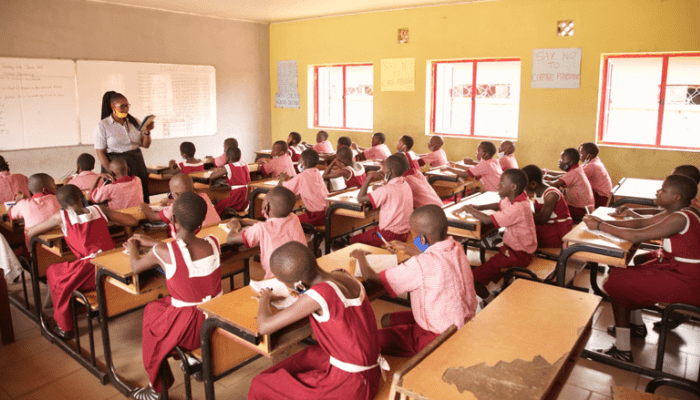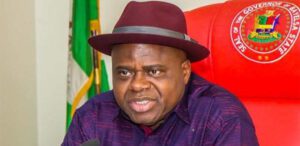
Democracy Day: School attacks, abductions, funding shortfalls, others threaten collapse of educational system
…Education budget allocation slashed from 15-20% to 5.98% of national budget in 2024 — Report
By Sodiq Adelakun
As Nigeria marks another Democracy Day today, the nation’s education system remains in a state of crisis. The incessant attacks on schools, abduction of students and teachers, and chronic funding shortfalls have pushed the sector to the brink of collapse.
The once-cherished institution that produced renowned scholars, innovators, and leaders is now struggling to provide basic quality education to its citizens.
The consequences of this collapse are far-reaching, threatening the future of Nigeria’s youth, economic growth, and national security.
In this special report, we examine the menacing threats to Nigeria’s education system during the one year into President Bola Tinubu’s tenure.
Nigeria’s education system is teetering on the brink of collapse. Despite notable achievements, the sector has been plagued by financial mismanagement, a hike in tuition fees, and a triple threat of attacks on schools, abduction of students, and inadequate funding.
This confluence of crises is putting the future of millions of students at risk.
Recall that the administration, led by Minister of Information and National Orientation Mohammed Idris, has touted substantial progress in its first year, as detailed in the report titled ‘One Year of the Tinubu Administration – Building a Safer, Stronger, and Prosperous Nigeria.’
Idris claims these reforms have started to stabilise the economy and spur growth, but the education sector continues to struggle.
Budget cuts and financial mismanagement
The education budget allocation has been drastically slashed from the previous 15-20 percent to a meagre 5.98 percent of the national budget.
This reduction has further strained an already struggling sector.
A recent report from the National Bureau of Statistics indicated that the funds allocated are primarily absorbed by personnel salaries, leaving little for capital projects essential for infrastructure development and quality education enhancement.
Surge in unemployment
Sometime around February 2024, a report was released that Nigeria’s unemployment rate surged to 5.0 percent in the third quarter of 2023, up from 4.2 percent in the previous quarter, according to the latest Labour Force Survey released on Monday.
The labour force participation rate, which measures the share of the working-age population that is active in the labour force, also declined.
The working-age population includes individuals aged 15 and above who are actively engaged in the labour market.
This population encompasses both employed and unemployed individuals. The report from the National Bureau of Statistics indicated that the labour force participation rate among this group dropped to 79.5 percent in Q3, down from 80.4 percent in Q2.
Using a new methodology, the National Bureau of Statistics revealed that the unemployment rate in Africa’s largest economy, which has over 200 over 200 million people, fell from 5.3 percent in Q4 2022 to 4.1 percent in Q1 2023.
Expansion of the student loan scheme
President Tinubu signed the Students Loans Bill into Law on June 12, aiming to provide government loans to indigent students in public tertiary institutions. However, the law’s enactment stalled, and the launch plan failed to materialise.
Despite passing in both the House of Representatives and Senate in November 2023, the bill faced criticism from ASUU and others, who saw it as an attempt to abandon funding public universities.
In March, Tinubu requested the National Assembly to repeal and reenact the bill, which was done, removing the income eligibility requirement and expanding loan coverage beyond tuition fees.
The scheme’s launch remained suspended indefinitely, pending corrections and stakeholder alignment.
Part of the Reformation, the Federal Government announced the expansion of the student loan scheme to include state tertiary institutions across the country.
According to the Managing Director of the Nigerian Education Loan Fund, Dr. Akintunde Sawyerr, the scheme will be extended to state universities, colleges of education, and technical colleges, benefiting no fewer than 336 institutions.
With the second phase of the scheme set to commence on June 25, students in state institutions can apply for the loan facility. Already, over 60,000 federal institution students have registered on the loan application portal.
The National Universities Commission, National Board for Technical Education, and National Commission for Colleges of Education have listed 63 state universities, 54 state polytechnics, 57 state monotechnics, 111 state technical colleges, and 51 state colleges of education as eligible beneficiaries.
The Fund has urged all state institutions to submit their students’ data immediately to facilitate a smooth application process.
The crisis of school attacks and abductions
It was gathered that a disturbing trend of armed attacks on educational institutions, with over 200 students kidnapped in recent years.
The government’s failure to meet UNESCO’s education funding benchmark has resulted in a meagre 5.98 percent allocation, with a significant portion going towards personnel salaries rather than capital projects.
The attacks on schools have instilled fear among students, parents, and teachers, with militant groups like Boko Haram and bandits targeting schools and abducting students.
The abduction of students has become a major issue, with no signs of subsiding. In March 2024, armed assailants attacked the Kuriga primary and secondary school in Kaduna State, abducting 137 students.
Similarly, in January 2024, gunmen kidnapped school pupils and teachers from the Apostolic Faith Montessori School in Emure Ekiti, Ekiti State.
Despite promises to reform the education sector, President Tinubu’s allocation of only 5.98 percent of the 2024 budget to education falls short of UNESCO’s benchmark of 15-20 percent of the national budget.
The allocation of N1.59 trillion to education is inadequate, with a significant portion going towards personnel salaries rather than capital projects. This has resulted in a lack of infrastructure and resources for schools, putting the quality of education at risk.
The government’s failure to prioritise education funding has resulted in a crisis that threatens the future of Nigeria’s youth.
UNICEF’s alarming findings
Also, the United Nations Children’s Fund (UNICEF) has sounded the alarm over Nigeria’s disturbing record of having the largest number of out-of-school children globally. According to UNICEF, a staggering 10.2 million primary school-age children and an additional 8.1 million at the junior secondary level are not in school.
Speaking at a two-day Regional Stakeholders Engagement Meeting in Gombe,Chief of Field Office, Bauchi UNICEF Field Office, Dr. Tushar Rane, expressed deep concern over the high number of out-of-school children and low learning achievement in the country, particularly in the North-East and North-West sub-regions.
Dr. Rane noted that only 63 percent of primary school children regularly attend school, highlighting the need for urgent action to address the issue.
Hike in tuition fees
Further compounding the crisis, investigation revealed a shocking trend in Nigeria’s education sector, where tertiary institutions, including universities and unity schools, have increased school fees by over 100 percent to 200 percent since President Tinubu’s inauguration.
Students, civil society organisations, parents, and concerned Nigerians are protesting the hike, citing economic hardships and the government’s failure to provide quality education.
Universities justify the increase, citing “prevailing economic realities” and the need to meet obligations to students and staff. However, the Federal Ministry of Education claims that the fees are to cover accommodation and utilities costs.
Our findings show that the ministry approved fee increases for some institutions, contradicting President Tinubu’s promise of tuition-free education.
We uncovered a statement by the Director of Senior Secondary Education, Binta Abdulkadir, announcing a tuition hike for Federal Unity Colleges from N45,000 to N100,000.
The Federal Ministry of Education’s permanent secretary, Andrew Adejo, clarified that the fee increase is not related to the Student Loans Act, but our investigation raises questions about the government’s commitment to affordable education.
He stated, “What they (universities) collect is charges to cover the cost of accommodation, ICT, power, among others. It is the Governing Councils of the Universities that have the power to approve such charges for them.
“The only university that increased charges after the signing of the Student Loans Act is the University of Lagos. They came to the ministry with a proposal to Increase their charges because all governing councils were dissolved, and we gave them approval.
“Immediately that was done, there was a resolution from the House stopping the increase of fees and the President also gave a directive stopping any increase in fees and that is where it is, even though several others have brought their proposals.”
Dissolution of governing councils
Adding to the turmoil, President Bola Tinubu’s administration has sparked outrage in the academic community with the sudden dissolution of governing councils in federal tertiary institutions.
The announcement on June 19, 2023, has been deemed “illegal and obnoxious” by the Academic Staff Union of Universities (ASUU).
According to ASUU, the dissolution violates the University Autonomy Act, which grants governing councils self-regulatory powers.
Chairman of the University of Jos chapter, Chris Yilgwan warned that this trend could “cripple the university system” and “stagnate progress” in federal universities.
Our investigation revealed that the sudden move may be linked to the government’s broader reforms in the education sector.
However, concerns persist about the legality and implications of these actions.
According to him, “The recent dissolution of the governing councils of federal universities by the National Universities Commission does not conform with the Miscellaneous Act of 2003 as amended. The Act provided a statutory tenure of governing councils of universities and so they cannot be dissolved at will like other boards.
“The governing council is the highest decision-making body of every university, and once it is dissolved without immediate replacement, it stalls every major decision in the university. So, we consider the dissolution as inimical to the progress of the university system and call on the federal government to rescind its decision.”
Though the government recently reconstituted the governing councils of the tertiary institutions, lopsidedness immediately observed in the list led to a directive for its review, and the indefinite suspension of the inauguration of the council members earlier slated for 31 May.




